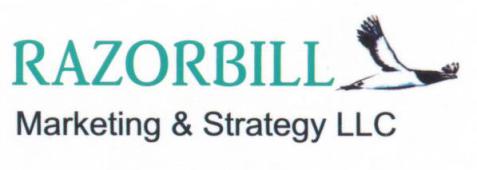Organizations & Work/Life Balance Topics
With activities that run 24/7 and the added complexity and freedoms of work-from-home, these observations touch on current topics and organization opportunities, in general
If I knew then what I know now ….
I've had the deep pleasure of working with younger colleagues, some of whom occasionally ask for career advice. My first response is to suggest they ask many people and consider the collective guidance, prior to offering mine. As I reflect, I recognize situations in which I had some key learnings that help to this day. Here are a few. What are yours?
Slay Some Dragons … (Source, former manager and colleague) … OK, he used a cruder metaphor, but his point was clear. You can be a helpful and productive contributor to the missions of those around you, but you’ll want to own deliverables that grow to accomplishments. Seek a problem that needs to be solved and creates enterprise value, own the process and results. Those accomplishments become your career story, and more importantly, build your confidence and sense of self-worth to the organizations in which you operate. Those successes become the answer to: “So what did you do in that role?”
You Screwed Up, So Learn and Move On … (Source: More than one former manager) … Sooner or later, we all have failures. Some we could have controlled, some were mostly unavoidable. Most aren’t complete disasters, though may have felt like that at the time. What can be debilitating is reflecting and reliving those experiences, and letting that drive too much caution beyond. I’ve always respected colleagues who could quickly brush off failure and regain their momentum. There are also those who seem to ignore and deny bad results, and they may well experience them again. The key is to learn what you can from experiences and use that to your advantage, to inform future decisions and actions. Don’t dwell on past failures, lest they become anchors.
Your Job is Not a Life Sentence … (Source: School of Hard Knocks) … All of us will eventually find ourselves in a role that we don’t enjoy, for whatever reason – bad boss, caustic work environment, no life balance, or so on. Unless at personal peril, it’s rarely a good move to just walk away. Rather, consider the current situation as a learning experience. You’re going to move on at some point in the next 6-18 months. Set a goal for what you want to get out of this current state – new skills, new network contacts, time to reorient your career perhaps? Then set a personal horizon for when you’ll begin your next career move. Leave that out in the future, knowing that you’ll have a new career stop after you extract what you can in your current role. No job is a life sentence.
Your Job Doesn’t Define You… (Source: C-Suite Panel at a Business Conference many years ago)… Dedicated employees embrace roles and their roles embrace them. It’s hard to not see ourselves through the titles and responsibilities we carry, and that can drive our self-esteem. However, associating our self-worth only with our role and career path can be a set-up for emotional collapse when there’s a disruption, whether through an unsolicited job change within a company or especially through a planned or unplanned termination. If we define ourselves through our roles, a disruption can be debilitating. Balancing our lives through not only the relationships of family and friends, but also through extra-curricular activities, such as non-profits, can ensure that our entire being isn’t associated with a job or a title. It also helps to ask yourself, “What value have I created, what have I accomplished?”, and do so outside of the framework of title in your signature block. A bad week at work can be re-balanced through a rewarding day with Habitat for Humanity.
What guidance do you offer junior colleagues?
https://www.linkedin.com/pulse/i-knew-what-know-now-andy-roussel/)
Observations on Diversity and Bias …. What Do You See?
In the weeks following the horror of the Rodney King assaults in the early nineties, the large printing company for which I worked held bias awareness training for team leads, supervisors, managers, and executives. I credit the leadership of that company for being insightful and taking steps to educate leaders in the company. A third party consultant facilitated a number of workshops that explored personal bias, and how that can manifest itself in workplace actions. One exercise sticks with me to this day ….
“Imagine you’re on a street corner in a city, anywhere in America, and a young man of color drives by in a very expensive car, a car more expensive than anything you’d be able to afford. What is your perception? Next, imagine that same experience, only it’s a young Caucasian man driving by in the same model of car. Are your assumptions about that driver the same as the first?”
I realized that my response to that, and specifically, my assumptions on how each driver came to be driving that expensive car were not the same. As much as I deeply wanted to believe that I didn’t harbor bias, the lens through which I viewed the world was shaped by what I saw in news media, entertainment, literature, and my own individual experiences. Our initial perceptions in any situation are not starting from a blank screen, and it’s helpful to recognize that. Sometimes, it warrants to deliberately dial back filters and simply observe.
Same company, different experience, but just as memorable …. The division in which I worked had just landed a major client for a multi-year contract. Their marketing leaders came to the facility to meet the operations and account support teams with whom they’d be working. When they arrived, they were escorted to a large conference room where the hosting team waited. When the client team walked into the room, it was quickly apparent that the visitors were all female, while the hosts were all male. The most senior among the client team quipped, “What, don’t you hire women here?” That uncomfortable “aha” moment sticks with me to this day, recognizing that I didn’t see how tilted in gender (and race) we were as a team. I came to believe that organizations should mirror the broader communities in which they operate and the clients they serve. I’m now blessed to work in an organization that’s dedicated to diversity and inclusion.
Ask yourself how you’d answer that first exercise? Are the different lenses through which you perceive others as balanced as you believe them to be? Is there bias in your view of others? As for your organization, does it truly reflect the communities around your locations and of your markets?
As I reflect back on a career across many roles under different leaders and organizations, I recall those managers who staffed teams with different backgrounds, skills, beliefs, and of true diversity. I also recall leaders who built teams that looked and acted more like themselves than not. By far, the highest performing teams were the former.
https://www.linkedin.com/pulse/observations-diversity-bias-what-do-you-see-andy-roussel/




